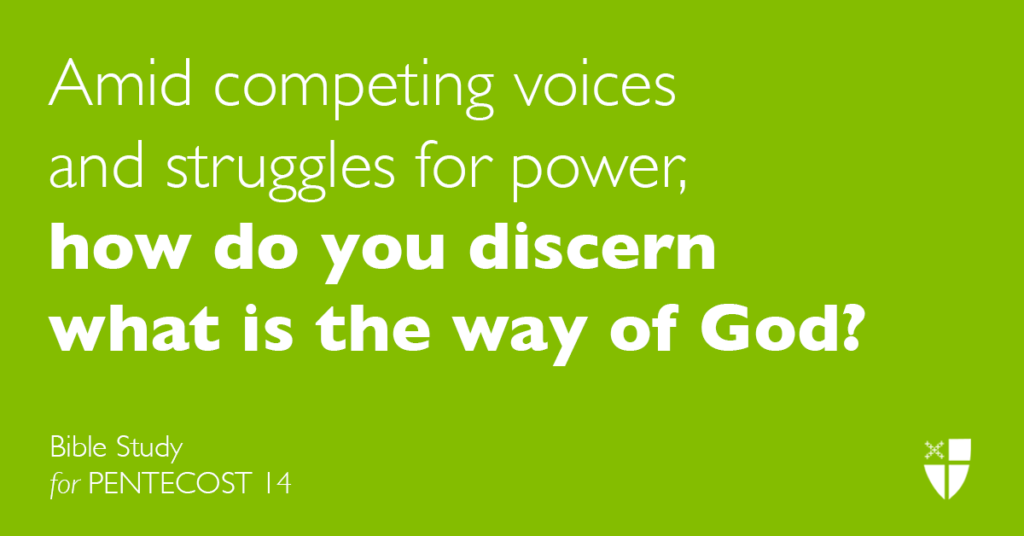Bible Study: Proper 19 (C) – 2019
September 15, 2019
Jeremiah 4:11-12, 22-28

This prophetic reading from Jeremiah paints a desolate image of the earth and the fate of those who live on it, and it hits uncomfortably close to our reality today. The National Oceanic and Atmospheric Administration (NOAA) released a report recently that July 2019 was the hottest month on record, measured by average global temperature. Here in Central Texas where I live, we’ve had multiple weeks with temperatures consistently topping 100 degrees. There is indeed a hot wind that blows, which brings home Jeremiah’s words of warning in a palpable way. In the book of Jeremiah, God is asking God’s people to turn back to God, to turn away from selfishness, greed, and shortsightedness, and to change their ways before destruction occurs.
It is clear that God’s people must work with God to promote the flourishing of land, people, and all living creatures. Part of orienting oneself to God is taking better care of creation and one another in a way consistent with God’s desires for both people and land to be fruitful and thriving.
- What small changes can you make to contribute to the flourishing of creation?
Psalm 14
The psalmist says, “The Lord looks down from heaven upon us all, to see if there is any who is wise, if there is one who seeks after God” (Psalm 14:2, BCP). Note that in this passage, wisdom simply means seeking after God. God is looking for someone—anyone—who seeks the ways of God and wonders what God might have us do.
In this passage, there is a juxtaposition between those who exploit others, relying on their own ruthless strength, and those who look to God, honoring God’s concern for the poor and downtrodden. The fruit of the former is corruption, while the fruit of the latter is joy.
To collaborate with God in caring for the poor and exploited is to contribute to deliverance and rejoicing. It is clear that the psalmist would like to be counted among God’s collaborators and hopes to inspire us to seek the same.
- Amid competing voices and struggles for power, how do you discern what is the way of God?
1 Timothy 1:12-17
This reading from 1 Timothy gives us a glimpse into someone who has turned from former exploitative, merciless ways and who makes it clear that it was abounding mercy, grace, faith, love, and patience that made all the difference. He says, “The grace of our Lord overflowed for me with the faith and love that are in Christ Jesus” (1 Timothy 1:14, NRSV). This grace overflows from within and spills out into the world from the writer, offering the same sense of abundant mercy and love to others. This brief witness shows us that it is patient, merciful, loving presence that has the power to help us change our ways. When we have received that loving presence, we can then model it for others.
- When have you experienced patient, loving, and merciful presence? How might you offer it to others?
Luke 15:1-10
This passage may be discomfiting for those who have worked hard to be righteous, but it is a balm to those who feel they’ve lost their way. Considering that each of us at some point will falter or feel lost, it is good news for all.
It harkens back to Jeremiah 50:6, in which God says, “My people have been lost sheep; their shepherds have led them astray, turning them away on the mountains; from mountain to hill they have gone, they have forgotten their fold.” “They have forgotten their fold” is a powerful statement for those who have wandered or been led astray. When we feel lost, in shame, doubt, or any other kind of spiritual desert, it is healing to remember that we still have a place to belong—a place where we are welcomed, wanted, loved, and received with joy. And for those who feel assured of their belonging, it is good to remember that the fold always, always has room for one more.
- When have you felt lost or led astray? What helped you remember your place in “the fold”?
¡No olvide suscribirse al podcast Sermons That Work para escuchar este sermón y más en su aplicación de podcasting favorita! Las grabaciones se publican el jueves antes de cada fecha litúrgica.


